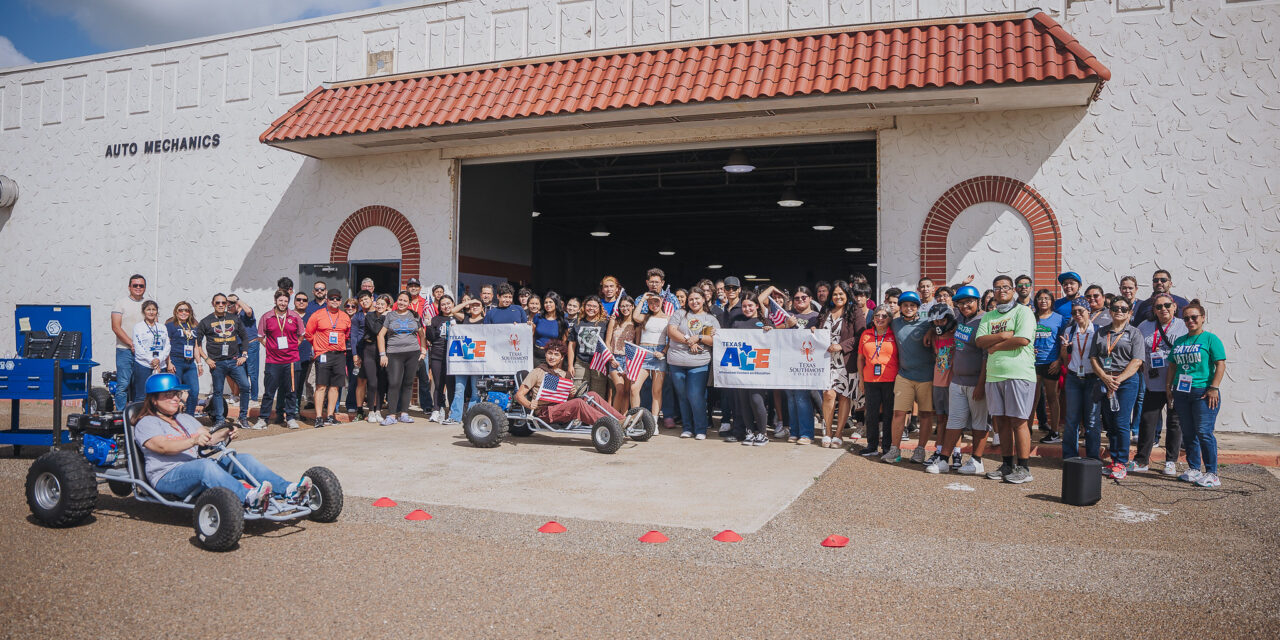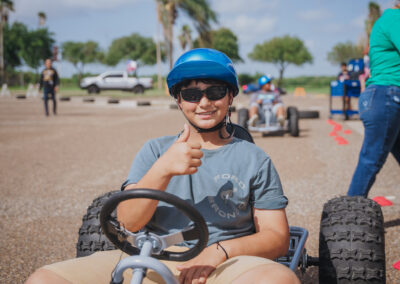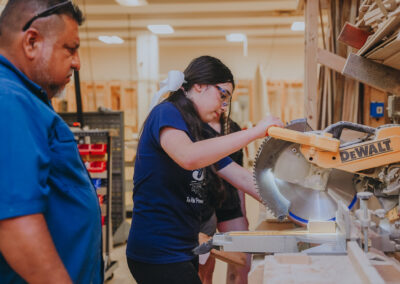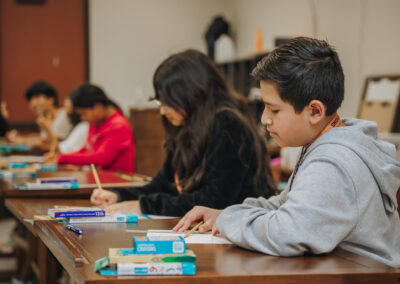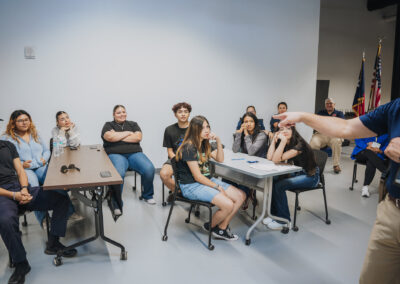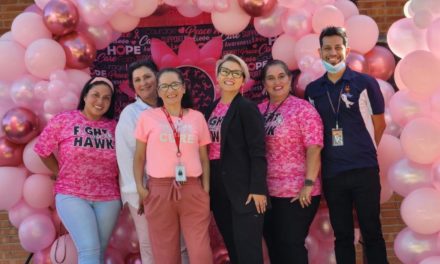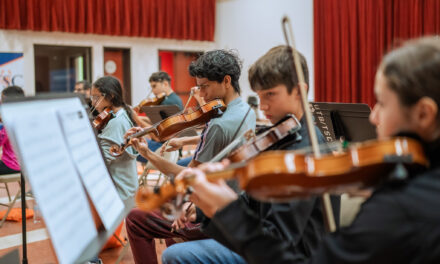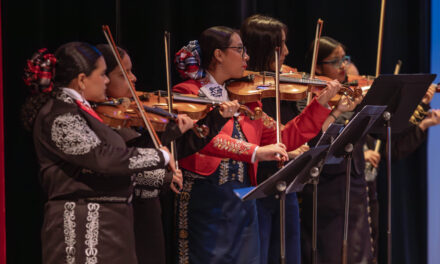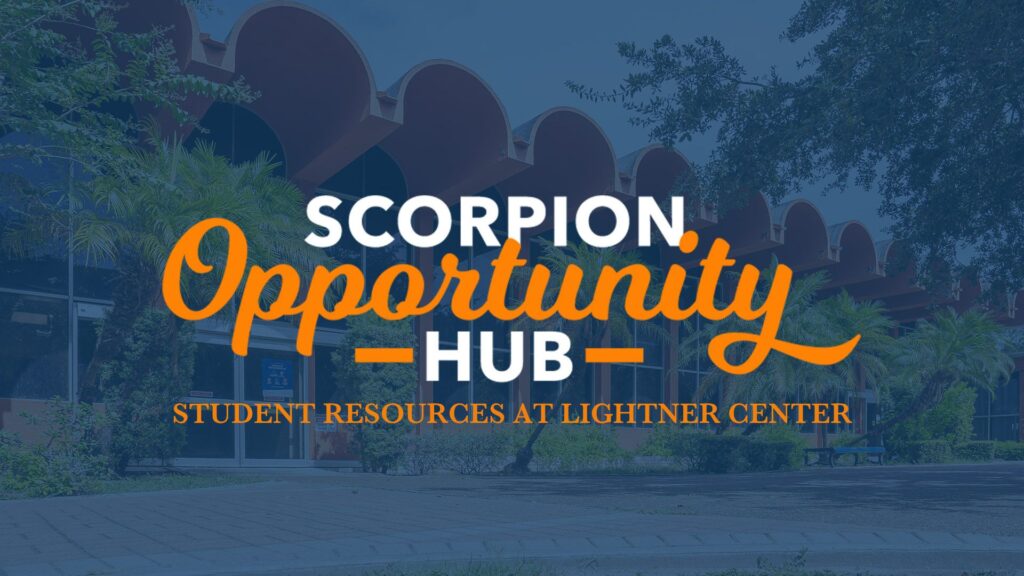Local students had a unique opportunity to receive hands-on experience with a variety of exciting activities and projects as part of this year’s Texas Southmost College (TSC) Summer Camp Program.
Over two weeks, from June 24 to July 5, students participating in the TSC Texas ACE program visited Texas Southmost College’s International Technology, Education and Commerce (ITEC) Center and the Recreation Center Annex, where over a dozen different themed sessions awaited them.
TSC Texas ACE provides no-cost activities before and after school for K-12 students in Title I schools. It is federally funded through 21st Century Community Learning Centers and administered on the state level by the Texas Education Agency (TEA). The TSC Texas ACE Summer Camp brought in participating ACE students from ten BISD schools, comprising five middle and five high schools.
Dr. Prisci Roca Tipton, Director of Texas Southmost College’s Nita M. Lowey 21st Century Community Learning Centers program, emphasized the importance of collaboration in the program’s success. “Our program is a testament to the power of collaboration,” she said. The achievements of the summer camps are largely attributed to the robust partnerships established across the community and within the various divisions of Texas Southmost College. Additionally, collaboration with BISD’s Food and Nutrition Services ensures that students receive nutritious meals, while BISD’s Transportation Department provides reliable transportation throughout the year. The involvement of TSC Texas ACE Site Coordinators, BISD-certified teachers, and BISD paraprofessionals in life skills training from the respective campuses further enriches the students’ learning experience.
For this installment of the TSC Texas ACE Summer Camp, several experienced TSC faculty members willingly joined in to share the benefit of their knowledge and experience in their respective fields with the young campers.
“At the heart of our summer program are the exceptional faculty at Texas Southmost College,” said Dr. Tipton. “Their dedication and expertise are the backbone of our summer camps. We work closely with faculty from various disciplines, offering students hands-on experiences in Science, Technology, Reading, Engineering, Arts, and Mathematics (STREAM). The program also includes contributions from the Division of Workforce Training and Continuing Education, offering forklift certifications to the students and their family members, and the Criminal Justice Institute, which hosts a Law Enforcement camp. Additionally, the Division of Student Services offered wellness camps encompassing volleyball, basketball, dance, yoga, and indoor soccer.”
Jaime Rodriguez, a Computer Information Systems and Cybersecurity instructor, held an Everything Information Technology (I.T.) camp, giving students a closer look at the basic skills necessary for those who may be interested in the field. “We start with the basic PC hardware, so I guide the students along as we use tools to open up the computers, look at the parts and go over what functions they have,” said Rodriguez. “Then, as the week goes on, we’ll move on to the basics of computer networking, so they have exercises like building network cables, and eventually, we start talking about the basics of cybersecurity.”
The scope of the overview given by Rodriguez to the students ties directly into one of the main purposes of the camp in the form of introducing them to several different pathways they can explore in any field in which they are interested. “Something like this can help them decide whether or not they feel that they identify more with the hands-on work of an I.T. technician or if they lean more toward the networking or cybersecurity aspects of the field,” Rodriguez added. “But they have all been very receptive toward what they’re learning, and they feel comfortable asking questions.”
In addition to the available workforce-related sessions, students could participate in activities focused on more broad subjects like art, history, and mathematics.
“Ms. Jamie Saenz and I developed the Math in History ACE Summer Camp this year, and we aimed to take students on a journey from BCE cultures through World War II,” said Britnney Gillespie-Porter, a TSC Mathematics Instructor. “Each day, we began with an introductory lesson to the historical era or culture on which we would focus that day, and then we integrated a math-based activity that built on the historical knowledge.” Some of the concepts covered by the students included the Mayans and their numbering system, the Renaissance period and its devotion to art, encryption, and codebreaking during World War II, and developing their own coded messages and corresponding ciphers.
The activities were specifically designed with the intention of showing students how much crossover exists in the Liberal Arts. “When we, as educators, take the time to show how our fields are interconnected, students begin to see the importance of the different content areas and the skills developed within those areas,” Gillespie-Porter continued.
“Highlighting the STEM fields through the lens of Liberal Arts makes each of those subject areas less intimidating to students. When tying a subject like math to more approachable topics like art or history, the stigma and difficulty of the intimidating subject is minimized. It’s no longer a barrier to understanding and educational advancement.”
Ultimately, one of the program’s primary goals is to show students the numerous academic and career possibilities available to them in a wide variety of fields. By giving them a chance to have hands-on experience with the basic concepts of many different fields, TSC Texas ACE is fulfilling that goal and helping create more opportunities for these young students as they look toward their futures.
TSC Texas ACE Summer Camp
Texas ACE Summer Camp students stand ready outside of the Auto Mechanics building at TSC’s ITEC Center on as they prepare for a test-run of the go karts they worked together to assemble over the course of a week.
TSC Texas ACE Summer Camp
A student gives the thumbs up shortly before taking a recently-assembled go kart for a test drive at the ITEC Center as part of the Texas ACE Summer Camp.
TSC Texas ACE Summer Camp
A student carefully lowers a circular saw to cut a wooden board as part of a hands-on exercise at the Texas ACE Summer Camp.
TSC Texas ACE Summer Camp
Ruben De La Rosa, Program Coordinator of TSC’s HVAC program, assists a young student in personal protective equipment with feeding an insulation sheet into an industrial machine. Students in the program gained valuable hands-on experience with many different machines as part of their summer camp experience.
TSC Texas ACE Summer Camp
Students clad in personal protective equipment lend each other a helping hand in assembling a piece of insulation during the HVAC workshop at the Texas ACE Summer Camp.
TSC Texas ACE Summer Camp
A group of students listens attentively as Jaime Rodriguez, Computer Information Systems and Cybersecurity instructor at TSC, gives a presentation on the functional processes of an average computer tower. Rodriguez’s Everything I.T. camp was designed to give students a rundown of the basic skills used by computer technicians.
TSC Texas ACE Summer Camp
Students study and take notes about various styles of architecture during the Texas ACE Summer Camp program.
TSC Texas ACE Summer Camp
Students carefully work on their assignment as part of the Math & Art portion of the Texas ACE Summer Camp
TSC Texas ACE Summer Camp
Two students mull over the colored markers they will select to assist in creating their code wheels during the Math in History workshop of the Texas ACE Summer Camp.
TSC Texas ACE Summer Camp
Students watch a demonstration on the basics of Computer Aided Drafting as part of the Texas ACE Summer Camp.
TSC Texas ACE Summer Camp
Students had the opportunity to see the interactive training simulation used by cadets enrolled in the Police Academy program.
